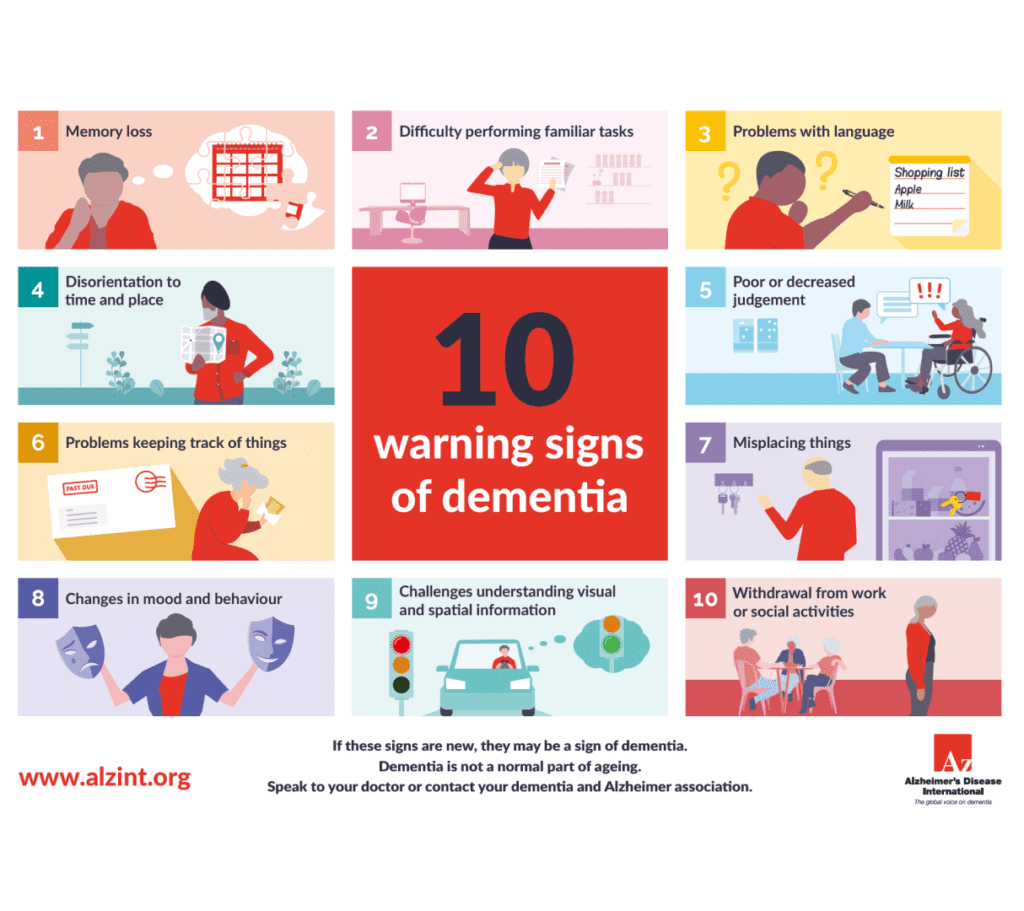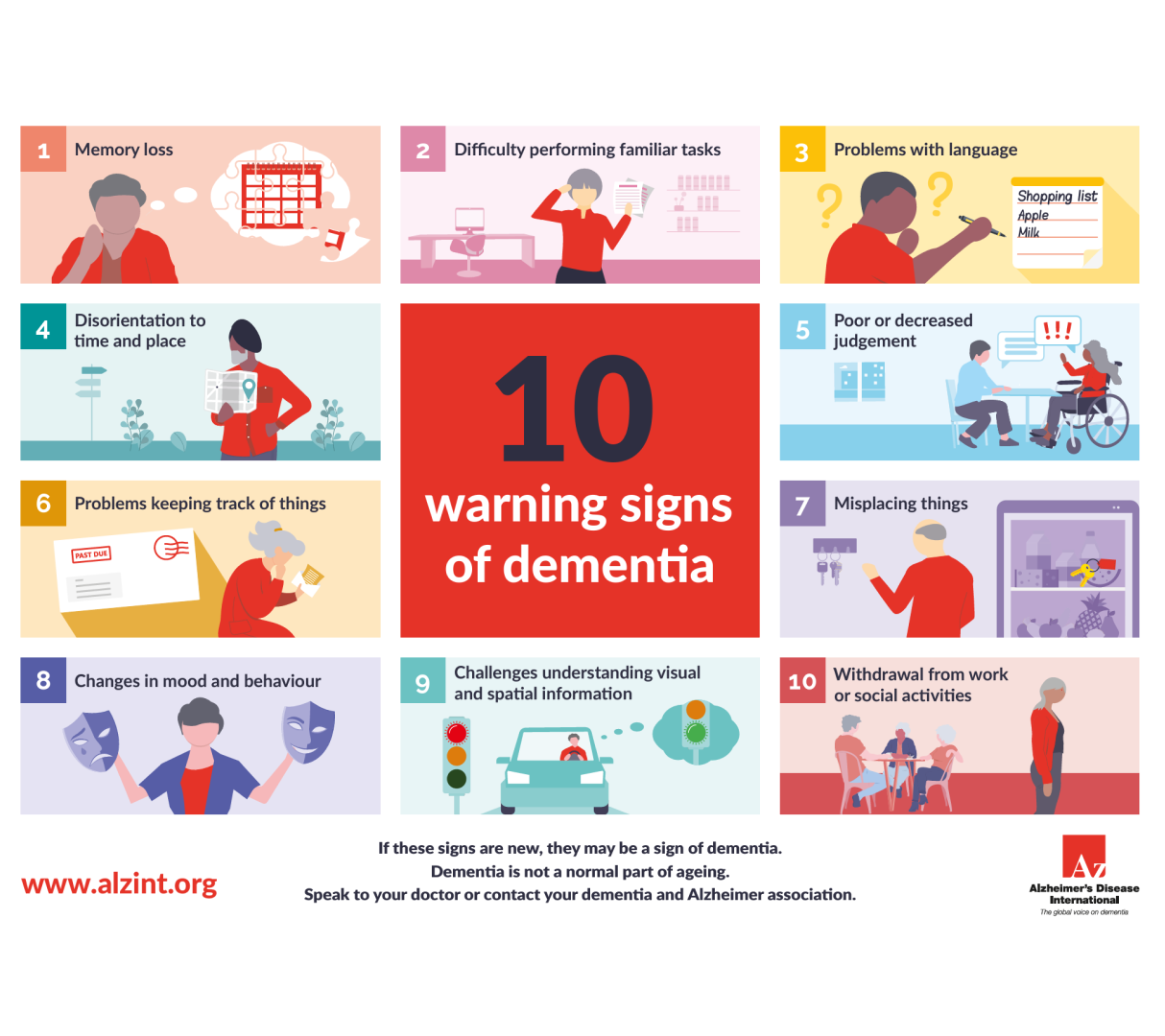Discovering that a loved one might be showing signs of dementia can be a daunting and emotional experience. Dementia is a progressive condition that affects memory, behaviour, and cognitive abilities. If you suspect a loved one is beginning to display signs of dementia, it's important to approach the situation with empathy and understanding, ensuring they receive the necessary support and care.
Early Diagnosis and Its Benefits
The first step is to observe and document changes in their behaviour, memory, and cognitive functions. Look for signs such as frequent forgetfulness, confusion in familiar environments, difficulty in completing familiar tasks, and significant mood or personality changes. These observations can be critical when seeking a professional diagnosis.
Alzheimer's Disease International has a good infographic that presents what to look for:

Communicating your concerns is important but should be approached sensitively. Choose a calm, comfortable setting to discuss your observations without making them feel judged or cornered. Express your support and reassure them that you're there to help.
Seeking a professional evaluation from a healthcare provider specialising in dementia or geriatric medicine is the next crucial step. Early diagnosis can significantly affect the management and progression of the disease, opening up options for treatment and support.
Exploring Treatment Options for Dementia
Exploring treatment options is another pivotal phase. While there's currently no cure for most types of dementia, certain medications and therapies can alleviate symptoms or slow down the disease's progression. These may include cognitive therapies, lifestyle changes, and, in some cases, medications prescribed by a healthcare professional
Planning for the Future with Dementia
Discussing care preferences, legal matters, and financial planning early can prevent additional stress and complications later. It's advisable to involve a legal advisor to address all issues comprehensively.
The Importance of Self-Care for Caregivers
Supporting a loved one with dementia also means caring for yourself. Joining support groups, either in person or online, can provide invaluable advice and emotional support from people who understand what you're going through. Remember, taking care of your mental and physical well-being is vital when supporting others - you can't pour from an empty bucket.
---------------
Facing the possibility of a loved one developing dementia is challenging but approaching the situation with love, understanding, and a proactive mindset can make a significant difference in their quality of life. Being informed, seeking professional help early, and ensuring you have a solid support system can help manage the disease's impact on your loved one and your family.
At Elli Cares, our objective is to support independent living for people with dementia, enabling them to continue to thrive in life while providing the peace of mind the family members need - knowing their loved ones are safe.






